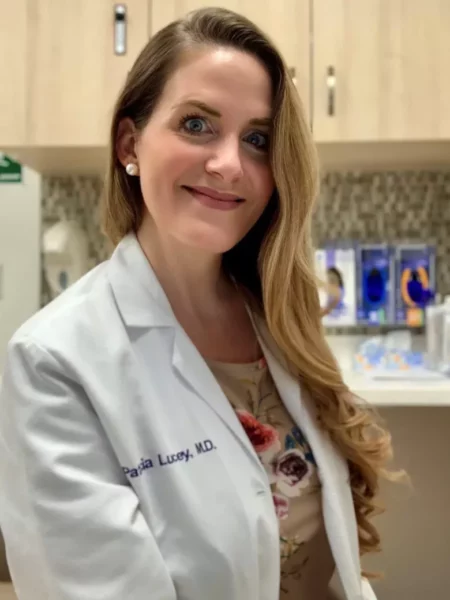May is Skin Cancer Prevention Month, and many may have plans to be out and about during both Mother’s Day weekend and Memorial Day weekend in the coming weeks.
Everyone will surely be hoping for sunny weather, and board-certified dermatologist Dr. Patricia Lucey joined WTOP’s Shawn Anderson and Brennan Haselton to talk about how you can safely enjoy the sunshine.
Listen to the interview and read the full transcript below.
Brennan Haselton: Doctors like yourself have been waving the warning flag about skin cancer, which can be deadly but generally easy to catch, for a long time. But clearly, not everyone is tuning in yet. How important is it to get a regular skin cancer screening?
Patricia Lucey: We usually recommend that all adults get a full body skin examination. But, surprisingly, a lot of the public isn’t aware that they need to get screened. There was a recent survey done by the Prevent Cancer Foundation. It was their second annual detection survey that screened over 7,000 Americans. And they released the results in April, and it showed that seven out of 10 adults are actually behind on at least one routine cancer screening.

And specifically when we’re talking about dermatology and skin cancer, more than half, about 52% of U.S. adults, are not up to date on their routine skin cancer screening. And they were assessing these patients looking at why their reasons were that they may not be up to date on their skin cancer screenings. And the results were actually very, very surprising on why some people may not know that they need to get their skin checked.
The very first reason that a lot of adults are not up to date is because they have no family history of skin cancer, so they think that they are immune or that they don’t need to get their skin checked because they don’t have a family history. However, we know that only about five to 10% of cancers have a hereditary linkage. The majority of skin cancer is actually from the sun or ultraviolet radiation, as in tanning bed use, prolonged sun exposure. So, we recommend that every adult, regardless of family history, or race or skin color, get an annual, at least an annual skin cancer examination.
Shawn Anderson: Now, some people are not only just not up to date, some have never even been to a dermatologist. Tell us a bit about what happens during a skin screening.
Patricia Lucey: We recommend to do a head-to-toe full body skin examination. We have the patient get undressed, usually down to their underwear, and we look them head to toe. We look throughout their scalp, there is skin on the scalp and you can get skin cancer on the scalp. We look in their ears, around their ears, their whole face, head and neck. We do their whole body and we even look in between their toes and, you know, in and around their genitals and their butt area.
People think that, “Oh, I don’t have to take off my socks. My skin has never seen the light of day there.” But it’s very surprising when we talk about people that can get skin cancer even in areas where the sun doesn’t shine. And in fact, you know, we talk all the time about the story of Bob Marley dying of a melanoma that was on his toenail. So, you know, a lot of people get concerned about, “Oh, I don’t feel comfortable and I didn’t, you know, wasn’t prepared,” but us dermatologists don’t see any of those. We just want to look at your skin head to toe and make sure that you’re healthy.
Brennan Haselton: Dr. Lucey, thanks so much for your time this afternoon.
Patricia Lucey: Thank you and I would like to let you know that early detection equals better outcomes, and that if you want to know more about it, you can check out the preventcancer.org website because we know that 29% of U.S. adults have never had a skin cancer screening and that again only five to 10% of these cancers are hereditary. Skin cancer does not discriminate based on family history, skin color or age, so everyone should be getting a full body skin examination.
Get breaking news and daily headlines delivered to your email inbox by signing up here.
© 2024 WTOP. All Rights Reserved. This website is not intended for users located within the European Economic Area.







